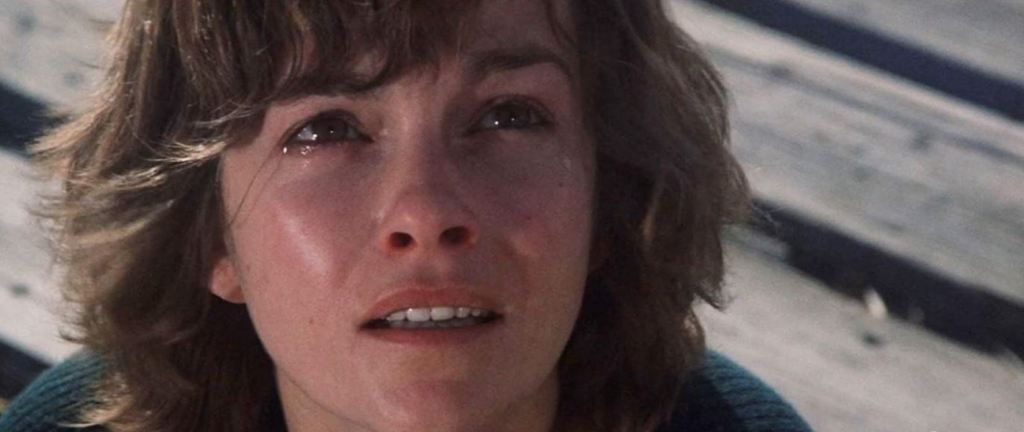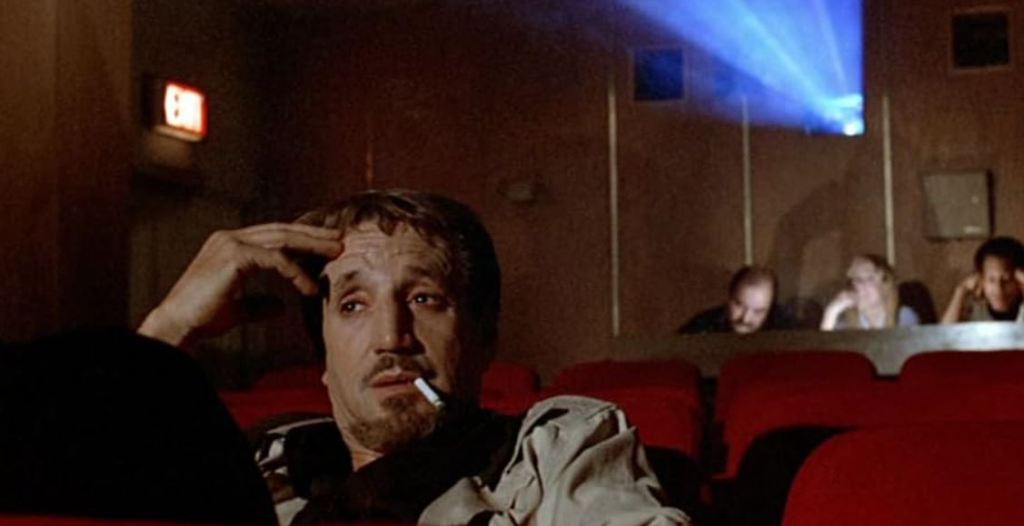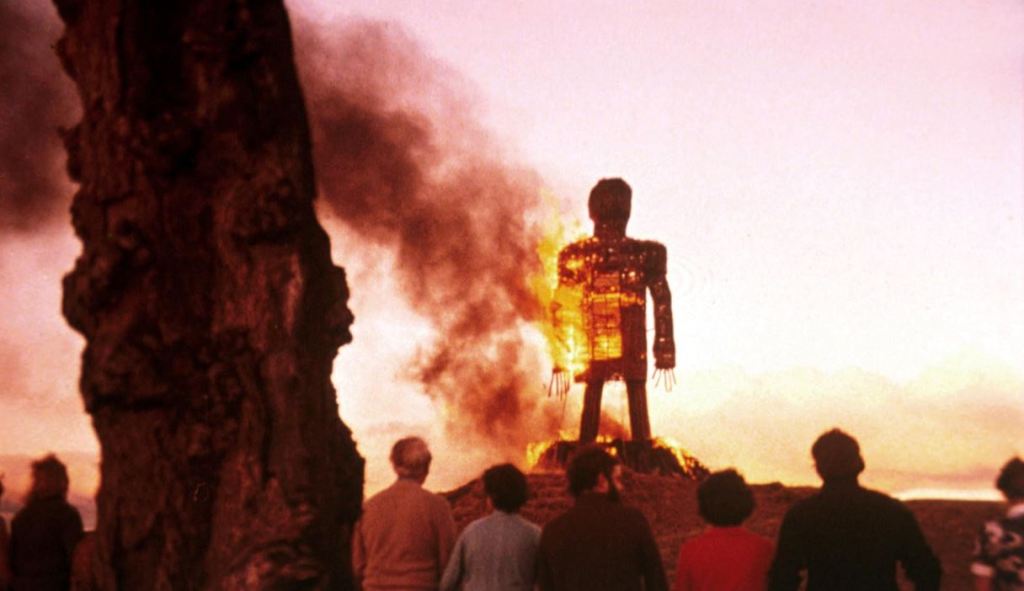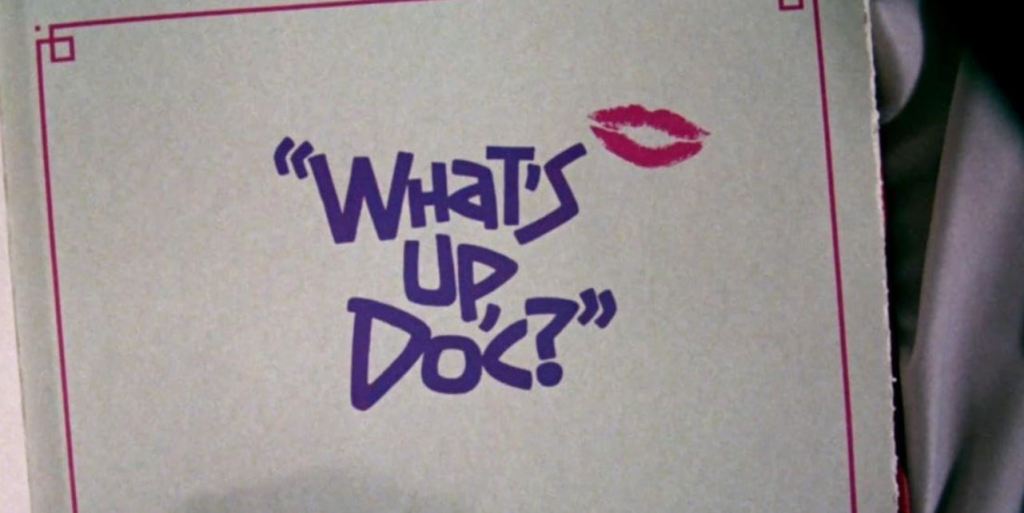Let us sit and tell sad tales about deserted daughters and lonely husbands.
Sandra Portinari, (Geneviève Bujold)
Out of all of Brian De Palma‘s films, it is perhaps his 1976 film “Obsession” which is most overlooked. Currently sitting with a rating of 6.7 stars on IMDb, and 73% critics score on Rotten Tomatoes (the audience score is a measly 59%), you would probably be inclined to give “Obsession” a miss. Released in the summer of 1976, just before the fall release of De Palma’s far better revered and appreciated film, “Carrie”, “Obsession” is a film that most casual cinephiles have properly overlooked. In fact, I wasn’t aware of the film myself, until I was introduced to it by the guys over at At the Flicks. I had always considered myself somewhat as a De Palma fan, but I had dismissed “Obsession” as simply a copy cat, second-hand version of “Vertigo”. Oh, I was so very, very wrong.
The film tells the tragic story of Michael Courtland (Cliff Robertson), a New Orleans real estate developer, who seems to have it all: a successful business, a big house, a beautiful wife called Elizabeth (Geneviève Bujold) and a daughter called Amy. Of course, Courtland’s dream-life unravels when his wife and daughter are kidnapped, and an attempt to rescue them ends up in Courtland losing everything he holds dear.

Fast forward to 1975, and Courtland is still very much obsessed with his late wife and often visits a monument he has had built in her memory, a replica of the church (the Basilica di San Miniato al Monte) in Florence, Italy, where the two of them first met. To show the transition of time, De Palma’s cinematographer Vilmos Zsigmond and Paul Hirsch (who frequently collaborated with the director), pan the camera across from Courtland in 1950 then across to the monument and back to Courtland in 1975. Coupled with Bernard Herrmann‘s beautiful but haunting score and the sound of the howling wind, De Palma manages to capture Courtland’s feelings of sorrow, loss and regret.
“Released in the summer of 1976, just before the fall release of De Palma’s far better revered and appreciated film, “Carrie”, “Obsession” is a film that most casual cinephiles have properly overlooked. “
Courtland’s business partner Robert LaSalle (John Lithgow) manages to convince the widower to accompany him on a work trip to Florence. While there, Courtland revisits the church and finds a young woman named Sandra (Bujold) who resembles his late wife. Courtland is very much taken aback by Sandra’s appearance and begins to court her. In a touching scene, Sandra asks Courtland what happened to his wife, and he ‘admits’ that he killed her. Much has been said about Robertson’s performance, but his deadpan delivery helps to reflect how ‘zombie-like’ and ‘out-of-it’ his character is.
Sandra decides to return to the United States with him, and similar to James Stewart’s Scottie in “Vertigo”, he subtly attempts to transform her into a duplicate of his lost love. Although, Sandra seems to have developed her own obsession with Elizabeth. The two of them begin to plan a big-scale wedding, but LaSalle and their secretary Jane (Loraine Despres) begin to voice their concerns about Courtland’s mental state. And, there’s also a hidden secret that Sandra is harbouring.

The film certainly ‘borrows’ heavily from Hitchcock’s “Vertigo” with both De Palma and writer Paul Schrader (best known for writing “Taxi Driver” and most recently directing “First Reformed”) citing their inspiration for the film being “Vertigo”. Schrader’s original screenplay, was titled “Déjà Vu,” (a title which I find very on-the-nose and rather clichéd to say the least).
De Palma found Schrader’s screenplay to be too long and determined it would be “un-filmable” as it was too complicated. Bernard Herrmann agreed with him and stated that the original ending should be jettisoned, telling De Palma after reading Schrader’s version “Get rid of it — that’ll never work”.
“Bujold’s performance in the film’s end scene is so impactful that you’re left reeling once the credits start rolling. She successfully manages to encapsulates the fragile mental condition of her character.”
Schrader has remained resentful of De Palma’s rewrite for years and claims that he lost all interest in the film once the change had been made. Schrader has stated in interviews that his “original three-part story concluded with a section set in the future (1985). My original idea in the script was to write an obsessive love where transcended the normal strictures of time.”
Reading up on the final third act proposed by Schrader, I can’t help but think that it would have been a complicated and convoluted third act that ultimately would have completely ruined the emotional impact of the film’s conclusion. (For those interested in reading Schrader’s full three-act script, it was released as part of the Arrow video Blu-ray in 2011).
The ending we do receive is gut wrenching and heart-breaking, so much so, that it reduced me to tears. Bujold’s performance in the film’s end scene is so impactful that you’re left reeling once the credits start rolling. She successfully manages to encapsulates the fragile mental condition of her character, and we feel her sense of pain and longing to be be loved unconditionally.

There are a lot of positive aspects to “Obsession” aside from the stunning performance by Bujold. Firstly, the film’s score is magnificent. After the film had been completed, Herrman declared it as the finest film in his musical career. He manages to capture the emotional state of both Courtland and Sandra without being too over-sentimental. Even though Cliff Robertson’s performance is very lacklustre in many scenes, there are moments where he manages to shine, especially in the film’s climax. And, when he does underperform, other aspects of the film such as the score; the editing, the cinematography and Bujold’s performance, manage to save the film from being an utter disaster.
In the 2015 documentary “De Palma” (by directors Jake Paltrow and Noah Baumbach), Brian De Palma stated that he felt the film’s major flaw was the casting of Robertson. He strongly felt that the actor couldn’t capture the anguish of the character and that Robertson was quite difficult to deal with on-set. Apparently, the actor insisted on a dark tanning makeup, inappropriate for his troubled character. It made lighting him so difficult that at one point cinematographer Vilmos Zsigmond shoved him against a wood wall and shouted “You! You are the same colour as this wall!”
“There are a lot of positive aspects to “Obsession” aside from the stunning performance by Bujold. Firstly, the film’s score is magnificent.”
De Palma may be dismissive of Robertson’s acting ability but he has sung the praises of Bujold who he felt had the more difficult role, which she played admirably, giving the film the emotional resonance needed for the project. I can’t help but wonder if Robertson felt like he was being overshadowed by Bujold and as a result this impacted his performance. Sandra is by far a more interesting and complex character compared to Michael and I can’t help but wonder if the film would have been more impactful if we had seen more from her point-of-view.
The film was an unexpected financial success. Columbia held on to the movie for almost a year before deciding to release in late August of 1976. August is usually considered the “dog days” of movie attendance, so it was a bit of surprise for the studio, and it earned the distributor over $4 million in domestic (U.S. and Canada) rentals.

Upon its release, the critical reaction was very mixed. Some critics like Roger Ebert sung the film’s praises. He wrote in his review that “Obsession is an overwrought melodrama, and that’s what I like best about it…I don’t just like movies like these; I relish them. Sometimes overwrought excess can be its own reward. If Obsession had been even a little more subtle, had made even a little more sense on some boring logical plane, it wouldn’t have worked at all.” I’m inclined to agree with him, the film works because of its melodrama and its unbelievable plot. With certain films like “Obsession” there must be a suspension of disbelief.
Other critics were quick to compliment the stylish cinematography by Vilmos Zsigmond, and Herrmann’s beautiful, highly romantic score. In fact his score for “Obsession” was one of the more acclaimed in his distinguished career, and earned him a posthumous Academy Award nomination (the composer died in December 1975, a few hours after completing the score of Martin Scorsese’s “Taxi Driver”).
Surprisingly, one of the critics who should have loved “Obsession” turned out to be very dismissive of De Palma’s film. Pauline Kael had praised many of the director’s other films in the past, but she wrote in her review that the film was “no more than an exercise in style, with the camera whirling around nothingness…”. I’m not quite sure why she was so dismissive of “Obsession” but I can reassure you that it is not “an exercise in style” or a “Vertigo” copy-cat, it is very much a film that can stand on its own legs and has plenty of its own uniqueness and beauty. It is well-worth a watch. And, if you happen to get obsessed with it like I did, then I did try to warn you.
Photos courtesy of IMDB




Leave a comment